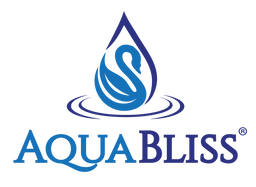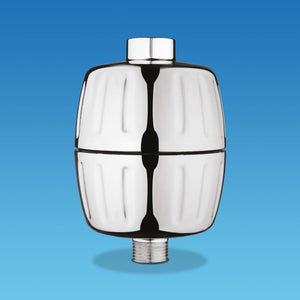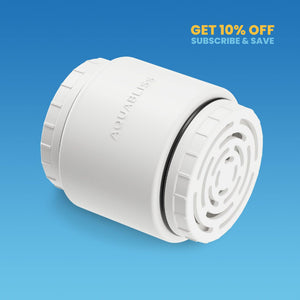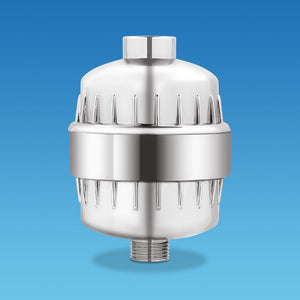Some believe that cold showers can boost testosterone, brighten mood, and increase fertility. But the real question many people ask is: do cold showers increase testosterone in a meaningful way, or is it just another wellness trend without solid science?
Here we explore the science behind the effects of cold showers on testosterone levels, fertility, metabolism, and well-being. While cold exposure influences the body in many different ways, the interaction between cold and testosterone has stimulated medical and health enthusiasts' research curiosity alike.
We will cover the evidence to hand, debunk the myths, and highlight whether taking cold showers should become part of your lifestyle if you want to boost the production of testosterone and overall well-being.
The Complex Science Behind Cold Showers and Hormone Health
Though cold showers have become more popular in the world of biohacking and exercise environments alike, we should differentiate anecdotal experience from science.
People tend to equate the stimulating physical sensation of cold water with enhanced vitality and a hormone boost, but a look at biological processes shows a more complex situation.
When people ask, “does cold showers boost testosterone?” the answer isn’t straightforward. Whether it affects hormone production or acts as a stress management and immune system support means, cold water therapy may have some indirect benefits that promote healthy testosterone production.
However, we should look at the entire context—scientific research, daily routines, and variability between people—to judge its part in a hormone-boosting regimen.
What is Testosterone, and Why Does It Matter?
Testosterone is a hormone important to numerous bodily functions, particularly in men.
Its primary functions include:
- Supporting muscle mass and muscle growth
- Maintaining bone density
- Regulating mood and mental health
- Driving sexual function and libido
- Supporting sperm production and male fertility
Testosterone levels naturally fluctuate over the course of a lifetime based on age, nutrition, physical activity, sleep quality, and body temperature. Maintaining optimal testosterone supports overall vitality and cardiovascular health.
Low testosterone or hypogonadism can result in tiredness, low libido, muscle loss, and erectile dysfunction. That’s why healthy levels are essential—not only for reproductive health but also for cognitive function, immune strength, and metabolic performance.
The body can synthesize testosterone through various influences. These include access to important nutrients such as zinc, vitamin D, and healthy fats, as well as hormone precursors like luteinizing hormone.
Feedback mechanisms between the brain and endocrine system tightly regulate its production. Chronic stress, insulin resistance, inactivity, and environmental toxins can all reduce testosterone.
While hormone therapy is available for clinically diagnosed low levels, many people are turning to lifestyle-based approaches, such as cold showers, as supportive tools for hormone balance.
How Does Cold Water Affect Testosterone?

Cold exposure activates the body’s stress response, which leads many to wonder: do cold showers increase testosterone through this hormonal reaction, or are the benefits more indirect?
When you take a cold shower, it triggers:
- Increased blood circulation to preserve core temperature
- Stimulation of the nervous system
- A temporary rise in cortisol and luteinizing hormone
Some studies suggest short-term cold water immersion can influence hormone production, but the long-term effect on testosterone synthesis remains inconclusive. There's currently little evidence that cold showers directly boost testosterone significantly.
However, the question “does cold showers boost testosterone” continues to trend because the indirect benefits are worth noting. Cold showers may improve sleep, circulation, and stress resilience—all crucial for maintaining healthy testosterone levels. Chronic stress and poor sleep are both known to lower testosterone.
By supporting stress regulation and mental recovery, cold showers may help create a hormonal environment conducive to testosterone regulation over time.
Do Cold Showers Lower Testosterone?
Contrary to popular belief, some research shows cold exposure can cause a temporary drop in testosterone during or immediately after the experience. However, these effects are short-lived.
Frequent or extreme cold exposure without adequate recovery could contribute to lower levels, particularly for individuals with pre-existing hormonal conditions. Most evidence suggests cold showers neither meaningfully raise nor significantly reduce serum testosterone over time.
Instead, they should be viewed as a wellness tool—beneficial in moderation, and complementary to broader strategies. Cold showers shouldn’t be used as a substitute for clinically necessary testosterone replacement therapy (TRT).
In fact, integrating cold showers into a balanced routine may help support stress adaptation and promote better sleep, both of which are crucial for sustaining hormone health. As with any wellness intervention, consistency, duration, and individual response all matter.
When used correctly, cold showers can be a safe, accessible method for enhancing recovery and boosting resilience, but they are not a magic fix for hormonal imbalance.
Do Cold Showers Increase Fertility?
Testosterone plays a central role in sperm production, count, and quality. Hot environments, such as hot tubs or saunas, may impair sperm function, so switching to cold showers may help support male fertility.
Cold water immersion has been linked to improved testicular temperature regulation and circulation, both of which are favorable for sperm production. While more research is needed, cold showers may assist fertility by protecting reproductive health and maintaining healthy testosterone levels.
Also, cold exposure has been shown to reduce oxidative stress, which can negatively affect sperm motility and morphology. By improving blood flow and reducing inflammation, cold showers may help create a more optimal environment for sperm development.
Integrating cold showers into a fertility-supporting lifestyle—alongside adequate sleep, stress reduction, and a diet rich in zinc and antioxidants—can provide further benefits. Though not a standalone solution, cold showers may offer meaningful support when combined with consistent, hormone-supportive wellness habits and clean, filtered water to reduce exposure to reproductive toxins.
Do Cold Showers Increase Energy?
Yes—cold showers trigger the body’s fight-or-flight response, stimulating the release of adrenaline and endorphins that can enhance:
- Alertness
- Mood
- Energy levels
The shock of cold water provides a natural wake-up effect, helping many people feel more focused and less fatigued. Over time, consistent cold shower use may improve daily performance, mood, and overall mental health.
Cold exposure has even been studied for its potential to regulate cortisol levels and provide a mild antidepressant effect, further contributing to daily productivity and positivity.
This energizing effect may also play a role in supporting motivation for physical exercise, which contributes to better testosterone production and overall well-being. The improved circulation and nervous system stimulation that result from cold showers can increase oxygen delivery to the muscles and brain, helping to enhance physical performance and mental clarity.
Cold showers offer a natural, low-cost way to boost energy and enhance hormonal health without reliance on caffeine or stimulants when incorporated into a balanced lifestyle, alongside adequate sleep, a healthy diet, and regular movement.
Do Cold Showers Improve Metabolism?
Cold exposure activates brown fat, a type of fat that burns calories to produce heat.
This can:
- Increase daily calorie expenditure
- Aid weight management
- Support a healthier immune response
While cold showers aren’t a weight-loss solution on their own, they can complement a lifestyle of physical exercise, a healthy diet, and reduced insulin resistance. When paired with nutrient-dense foods like lean beef, fatty fish, and protein-rich meals, cold showers may contribute to a healthier metabolism.
Can Cold Showers Be Harmful to Hormonal Health?
Taking cold showers too often or for too long may have side effects, such as:
- Suppressed hormone levels
- Elevated cortisol
- Disrupted sleep
People with low testosterone, thyroid issues, or chronic stress should approach cold exposure cautiously. Cold showers are most effective when used consistently but in moderation.
Always consult a healthcare provider before introducing extreme cold therapy, especially if you're undergoing TRT or managing hormone-related conditions.
Do Cold Showers Increase Post-Workout Recovery?
Yes. Cold showers and ice baths are widely used by athletes to:
- Reduce muscle soreness
- Minimize inflammation
- Speed up recovery
Cold water helps clear lactic acid and promotes better blood circulation, which supports muscle repair and helps maintain stable testosterone levels post-exercise. When combined with good nutrition and hydration, cold therapy can be a valuable recovery tool.
How Cold Showers Compare to Other Testosterone-Boosting Strategies
Cold showers offer natural benefits—but they’re most effective as part of a broader wellness approach. Other ways to boost testosterone levels include:
- Strength training and HIIT
- Adequate sleep
- Zinc-rich foods and healthy fats
- Stress reduction
In more serious cases of low testosterone, testosterone replacement therapy may be necessary. Cold showers are affordable and accessible, but they’re best seen as a complement to other proven strategies.
The Role of Shower Filters in Cold Water Showers
While water temperature matters, water quality matters too. Tap water can contain:
- Chlorine
- Heavy metals
- Other contaminants
Using a shower filter from AquaBliss can help:
- Protect your skin and hair
- Improve your cold shower experience
- Reduce chemical exposure
Filtered water not only enhances the benefits of cold water stimulation but also ensures your wellness routine is clean from start to finish.
A Healthier Way to Replenish the Body and Support Hormonal Balance
Here’s what you should know:
- Cold showers do not directly raise testosterone levels, but they promote energy, mood, sperm production, and recuperation.
- There are risks, particularly overuse and misuse, for people with hormonal disorders.
- Top performance is achieved through the combination of cold showers with adequate nutrition, rest, and stress management.
- Cold showers cannot substitute medical treatment, but can complement a lifestyle aimed at hormone stability and energy. Paired with filtered water, they are an even more potent complement to your well-being regime.
So, when asking “do cold showers increase testosterone?” the most accurate answer is that they help indirectly by supporting the conditions needed for healthy hormone function, rather than acting as a direct testosterone booster.
Paired with filtered water, they are an even more potent complement to your well-being regimen. AquaBliss simplifies the process of upgrading your water quality and refreshing your routine. Check out AquaBliss Filters to get your journey underway.
Need assistance choosing a filter? Contact us here or visit AquaBliss.com to learn more.







